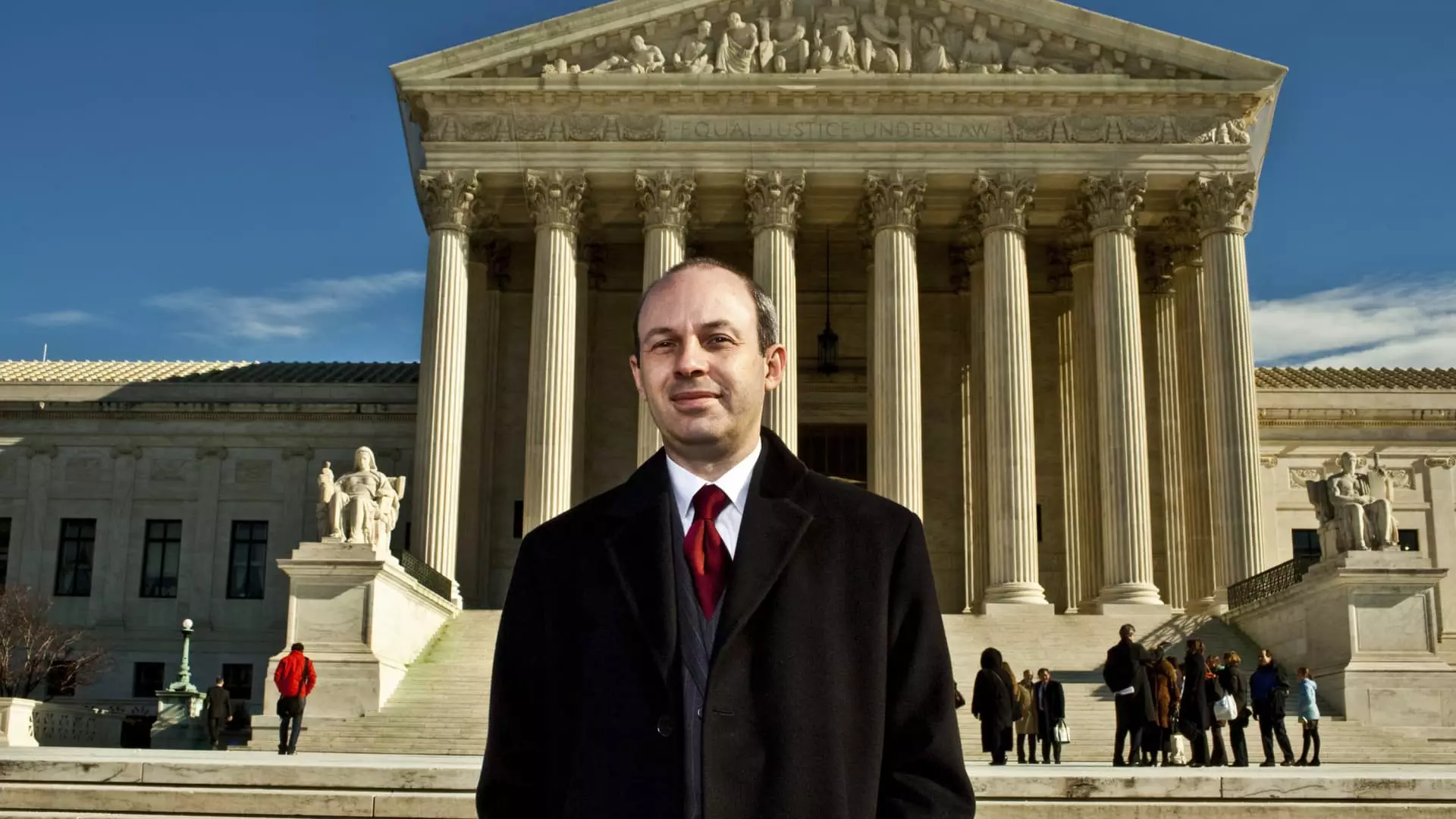In a stunning legal development, celebrated Supreme Court attorney Tom Goldstein has been ordered to remain in federal custody without bail following allegations of his involvement in criminal tax evasion. This case, fraught with high stakes and complex legal implications, has drawn considerable public interest due to Goldstein’s esteemed position in the legal community and his puzzling entanglement in a scheme involving cryptocurrency and potential witness tampering.
Goldstein, known for his role as the publisher of SCOTUSblog and as a prominent Supreme Court advocate, faces serious charges related to tax evasion. Prosecutors argue that he has failed to disclose to Pretrial Services officers that he maintains control of two significant cryptocurrency wallets from which he reportedly received over $8 million in a single week. They assert that Goldstein has been actively transferring vast sums of cryptocurrency, totaling more than $6 million, thereby breaching conditions set forth during his bail hearing. Such actions have prompted prosecutors to label him a “serious” flight risk, raising questions about his compliance with judicial orders.
The gravity of the situation escalated when prosecutors revealed that Goldstein purportedly offered valuable incentives, including cryptocurrency, to a potential witness who could provide critical information regarding his and his law firm’s financial dealings. This revelation has stirred concerns about the integrity of the judicial process and the potential for witness tampering, further complicating Goldstein’s legal predicament.
Legal Implications and Judicial Concerns
During a bail hearing, Goldstein staunchly denied ownership of the disputed cryptocurrency accounts. He claimed to the court, “These are not my accounts,” and asserted that he did not engage in any of the contested financial transactions. However, the presiding Judge Timothy Sullivan expressed skepticism, concluding that there was “clear and convincing evidence” of Goldstein violating his release conditions.
Judge Sullivan articulated the court’s apprehension regarding the risk of flight, emphasizing that no effective conditions of release could sufficiently mitigate the threat posed by Goldstein’s actions. This statement highlights not only the judge’s concerns about Goldstein’s accountability but also the wider implications for the justice system when individuals involved in high-stakes court cases attempt to manipulate the boundaries of legality.
Goldstein’s indictment stems from allegations that he willfully failed to report millions in poker winnings while using his law firm’s finances to cover gambling debts. The prosecution claims that he evaded a tax obligation exceeding $5.3 million, demonstrating a serious violation of federal tax laws. The scrutiny on Goldstein’s cryptocurrency transactions raises additional questions about the intersection of digital assets and traditional banking regulations, particularly as his wallets have been implicated in transferring massive sums of money since their inception.
One of the cryptocurrency wallets in question, previously dormant at the time of Goldstein’s indictment, suddenly became active shortly thereafter, pointing to a potential attempt to hide assets from federal authorities. The pattern of transactions, including the immediate inflow and outflow of substantial crypto funds after Goldstein’s court appearances, raises alarming flags for investigators and poses a substantial challenge for his defense team.
Tom Goldstein’s situation is an alarming reminder of how quickly a respected legal career can be overshadowed by criminal allegations. Known for arguing more cases before the Supreme Court than many of his contemporaries, Goldstein’s recent actions may irrevocably tarnish his legacy in the legal field. The contrast between his previous stature and current legal hurdles also raises broader questions about the ethical responsibilities of legal professionals, particularly those at the height of their careers.
As this case unfolds, it will likely serve as a critical examination of both the legal system’s handling of high-profile defendants and the regulatory frameworks surrounding cryptocurrency. For now, Goldstein remains behind bars, a situation that underscores the potential consequences of allegedly defying the law, regardless of one’s position within the hallowed halls of justice.
The ongoing developments in this case promise to captivate audiences, with implications that extend well beyond the individual involved, touching the very nature of integrity within the legal profession and the evolving landscape of financial regulations.


Leave a Reply